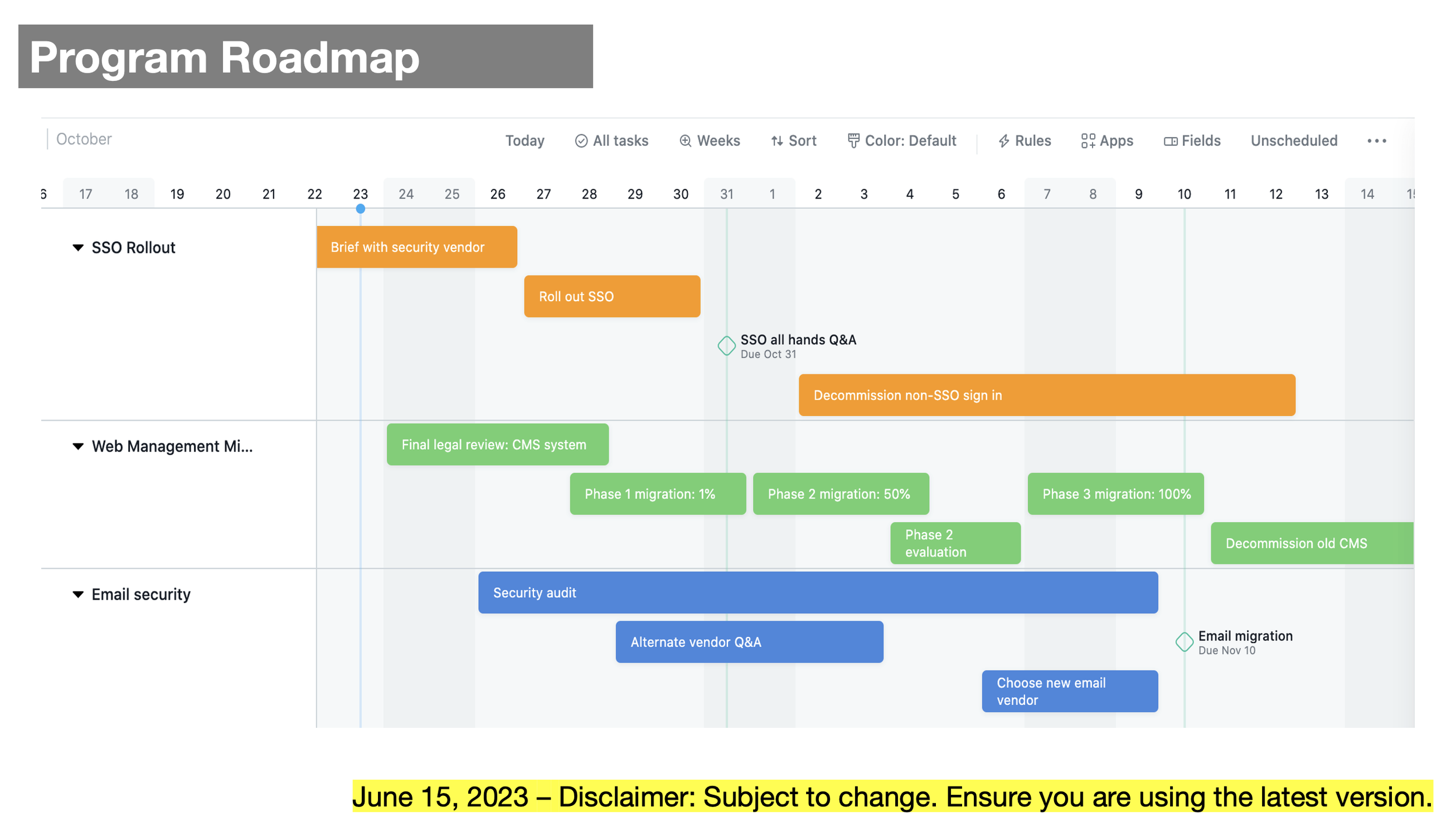Product Roadmap Examples
Part 12 - Successful Roadmaps Series
In the previous article we talked about the different type of roadmaps. In this article we will explore examples of different types of roadmaps.
Product Roadmap
This roadmap works well for products (and even projects). This roadmap provides a significant amount of information to elaborate the vision, priorities, objectives, and measurements. It uses the Now, Next, Later, & Future prioritization method.
Product Based Roadmap Example
Customer Focused Roadmap
This roadmap provides the ability of the customer to see the overall progress of new capabilities for a specific product or series of products. Its main focus isn’t on the vision for the product or the measurable objectives. It’s designed to inform customers of future capabilities. This is a good way to communicate to customers when there are a significant number of capabilities and enhancements to those capabilities being released. It’s a very effect communication tool for organizational change management.
Customer Focused Roadmap Example
Team Based Roadmap
This roadmap’s main focus is to align teams within the organization around capabilities that are to be delivered. It’s an effective tool when teams need to hand-off code or other items to other teams. It’s a great organization change management tool in that it helps coordinate between the teams. This example doesn’t show the overall capability name but rather shows the work a team is performing. A good upgrade for this roadmap would be to align capabilities to the work allocated to each team. This roadmap also is very helpful in assigning resources as it indicates the priorities for a specific timeframe.
Team or Resource Based Roadmap Example
Program or Portfolio Roadmap
This roadmap works well for program and portfolio managers as it indicates which projects are being worked on and when they are to be completed. As a high-level global schedule it allows the organization to see all projects and the expected time of completion.
This example does lack alignment with a capability or capabilities which might be more beneficial for Product Managers and Product Owners to ensure they are aligning the work to the overall schedule.
An additional element to consider would be to add team names or resources to the projects indicated. Providing teams and resource names will assist resource managers in allocating resources to specific projects.
Program or Portfolio Roadmap Example
Project Roadmap
This roadmap example shows a high level roadmap for a project. It doesn’t show specific dates but rather quarters of when work can be expected to be completed. This diagram would also work well for sprints or releases.
Ideally knowing the relationship between the capability and the tasks listed would be beneficial for Product Managers and Product Owners.
Project Roadmap Example
User Story Roadmap
This roadmap is great for Agile teams that are working to deconstruct the capabilities outlines in the Product Roadmap into specific user stories or cards. The backbone or the very top line of the User Story Map comes straight from the product roadmap. High level capabilities will form the back bone. This diagram is great to help prioritize the team’s work and to ensure they are working on the highest priority capabilities first.
Agile User Story Map / Card Roadmap
Agile Release Roadmap
This roadmap and can be easily used with the User Story roadmap. This roadmap incorporates the concept of Now, Next, and Future which makes it a good tool for prioritizing small amounts of capabilities. A large inventory of capabilities would require a more refined prioritization category such as Q1 2025 or the second half of 2025.
Agile Release Roadmap
Customize Your Own
Add and subtract elements from the examples above to create you own roadmap that is more meaningful for you organization. There are quite a few tools out there to help you build these roadmaps. Overall, it might be beneficial to create your roadmaps in a more flexible environment such as an endless whiteboard or flexible project tools.








